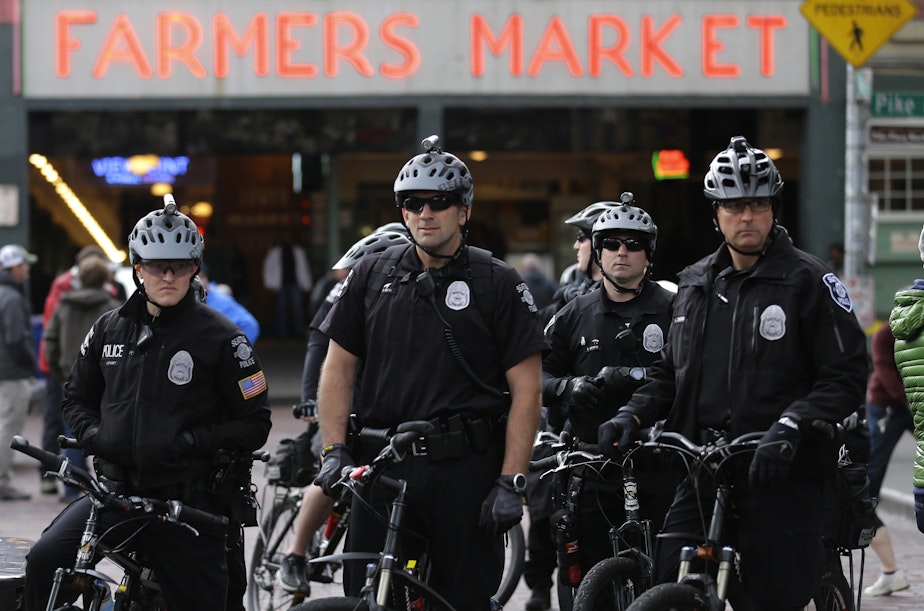Is de-escalation training a priority for WA police? The evidence raises doubt

There’s been a lot of thought given to how to lessen officer-involved shootings and other violent encounters with police.
In 2018, Washington voters approved a police reform measure called Initiative 940.
"When voters passed Initiative 940, it came with a sweeping list of police reforms, independent investigations into use of force, to change the law on when use of force is justifiable," said Grace Deng, who wrote about the training for The Washington State Standard. "One of the reforms passed was requiring mental health and de-escalation training."
Police were given 10 years to train their officers in de-escalation, but, five years in, departments don’t appear to be on target. A July report showed only 28% of officers have taken the in-person part of that training.
The state mandated de-escalation training is required for all of the roughly 11,000 officers in the state by 2028. How to administer the training to those officers is something Jerrell Wills thinks about every day. He’s the deputy director of the Washington State Criminal Justice Training Commission, which runs the de-escalation courses and released the July report.
Wills worked in the King County Sheriff’s Office for 31 years, retiring as a division chief.
He said that only 28% of officers completing the course is discouraging.
"Ten years to complete three days of training seems more than reasonable," Wills said.
Wills said there are a number of reasons why uptake on the training has been slow. Impacts from Covid have slowed progress and some officers are planning on retiring before courses need to be completed in 2028.
"My response to some of those comments is, 'You're not guaranteed safe conclusion to your next shift,'" Wills said. "Why not ensure that you have all the tools available to you?"
Wills said the clock was ticking toward the 2028 date when officers need to complete de-escalation training and he doesn't know if they will complete their goal.
Some local departments pushed back against the idea that they’ve been slow to participate in de-escalation training.
A representative from the Seattle Police Department said scheduling training for more than 900 Seattle officers can be a challenge, on top of the regular demands of the job. He said the department is staggering its trainings over a couple of years, so completion rates don’t reflect the progress the department has made.
"What the Seattle Police Department did, basically, is sorted all of our officers by their serial numbers and basically split the department into halves," said interim Assistant Chief Dan Nelson. "Half of the group went to a two-day patrol tactics course and then the other group went through the three-day and then this year we flopped. And so, in a two-year cycle, we will have gotten all of our folks through this core curriculum."
In her reporting, Grace Deng spoke with Nickeia Hunter, whose brother was killed by police in Clark County.
"She said, three years after the murder of George Floyd and the nationwide protests against police brutality, she feels like we're back to pretending that things are fine that there isn't this the same amount of urgency from the public and from lawmakers to make changes to end police brutality," Deng said.





